Tips to use to reduce the effects of alcohol.
If you’re one of those people that suffers a little after a drink or two, by following a few of these guidelines and supporting your liver you can reduce the effects of alcohol and make your recovery a lot quicker.
Avoiding alcohol is the obvious recommendation, however there are ways you can include preparation and prevention, especially when it's the holidays and the season for celebrating.
Maybe you're allergic, not hungover?
If you follow all these tips and your hangovers are still terrible then you might find that you’re allergic or sensitive to the yeast in beer, a certain type of grape or the sulphites in wine.
It’s a good idea to consciously choose which alcohol suits you better and avoid the pain or using a process of elimination!!
Alcohol can cause the stomach lining to feel inflamed, and you can find out more about inflammation, it’s effects and how to mange it.
Before and during the event: -
Avoid drinking on an empty stomach. Plan ahead!! Always eat a meal before drinking to reduce the risk of inflammation from alcohol.
- TOP TIP – take a teaspoon of glutamine in water before a night out to protect your gut it can really make a difference for some. Or you can try slippery elm powder, it’s a traditional herbal remedy that helps protect, soothe and heal inflamed mucous membranes, including those lining the throat, stomach and digestive tract. mix a teaspoon of slippery elm powder with yoghurt, or mash into a banana.
- Don’t mix your drinks make it a wine night or a spirit night. In general, the less colourants and additives you add to your drinks the better try and keep it clear i.e. white wine, vodka or gin. It is of course an individual thing so get to know your body and which one has least effect on you.
- Take the herb Milk thistle it protects and detoxifies the liver.
- Take N-Acetyl-Cysteine NAC – is an amino acid that will increase glutathione (the master antioxidant) - helping your liver to break alcohol. It's found in poultry, oats, dairy, garlic, onions and brussels sprouts, although higher amounts may be needed to provide optimal support following alcohol consumption. Take 25 – 50mg daily throughout the festive season. You can also take NAC in higher amounts 30 minutes before you have a drink to help reduce the toxic effects of alcohol.
- Magnesium - an essential mineral, is easily depleted by alcohol. It has anti-inflammatory effects thereby helping to reduce symptoms of a heartaches and hangovers. Supplement daily with 25 – 50mg magnesium to keep sufficient levels.
- B Vitamins - Alcohol depletes B vitamins, at the same time they're essential to help clear it from the body. Supplement with a B complex.
- When you get home: -
- With a large glass of water – take another milk thistle, Vitamin C, B Complex and either fish oils or evening primrose oil.
- Eat something to help replace nutrients like mixed fruit juice, smoothies, or a slice of toast with peanut butter.
- Take a teaspoon of bicarbonate of soda in a glass of water with some lemon juice. This helps to alkalise the acidity in your body caused by drinking, and fight symptoms of your hangover.
Next Day:-
- Replace lost electrolytes. Keep coconut water handy, it rehydrates the body more effectively than water due to the electrolytes in it. Dehydration is one of the primary causes of headaches, especially hangover headaches.
- Make your own Rehydration ‘morning after’ Drink - ½ lemon, pinch of salt, a teaspoon of honey to water helps replace the sodium and glycogen lost the night before. The likes of tea and coffee will just further dehydrate you. Squeeze in the juice of the lemon and add the salt and honey, with a splash of hot water from the kettle, and mix until the salt and honey are dissolved, top up with cold water and drink immediately.
Breakfast Cures
- Avoid the traditional fry up – the cooked fats are difficult to digest and hard on the liver, your body does not need additional work whilst it’s trying to heal itself. Rather, opt for a breakfast which contains foods that will help repair the damage.
- Poached eggs on wholegrain toast, with onions and beans help support liver pathways, breakdown toxins and elimination. Egg yolks contain large amounts of cysteine, which breaks down acetaldehyde, one of the culprits behind a hangover
- Porridge with chopped banana is a good hangover food as both contain crucial B vitamins which help reduce the stress your body is under. The banana will also help restore lost potassium.
- Fruit Smoothie made up from natural yogurt, banana and berries is a great hangover cure because dairy is another good source of cysteine and works well paired with high vitamin C fruit.
- A freshly home-made juice containing apple, carrot and beet root with added ginger. Brightly coloured fruits and vegetables are a rich source of natural antioxidants, providing your body with a much-needed antioxidant hit.
Although exercise may be the last thing you want to do, however gentle exercise - like yoga or walking will help stimulate circulation, get your brain functioning and encourage the release of happy endorphins that tend to be low the morning after the night before, also known as the ‘alcohol blues’.
If you don’t want to miss any future newsletters or blogs please sign up here
Disclaimer: The advice in this blog is not intended to be a substitute for medical advice from a qualified, licensed professional, please consult your medical doctor if you have persistent symptoms.



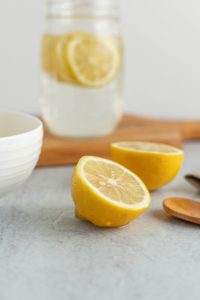
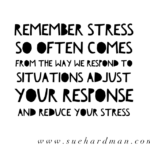 infections.
infections.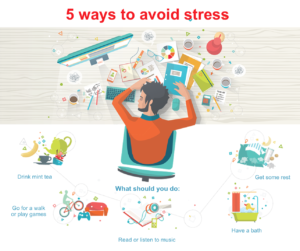

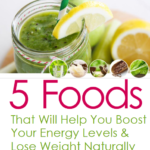
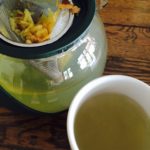 Nothing like a good cuppa tea to sort out the problems of the world. My grandmother loved her tea and it was the first thing we’d do when we visited her, I do miss being able to sit down and share a pot of tea with her.
Nothing like a good cuppa tea to sort out the problems of the world. My grandmother loved her tea and it was the first thing we’d do when we visited her, I do miss being able to sit down and share a pot of tea with her. need to know which one to use when and you may have be unaware of some of the other things these common herbal teas can be useful for. Chamomile is calming but so much more, peppermint for wind and so much more, ginger for nausea and so much more…..
need to know which one to use when and you may have be unaware of some of the other things these common herbal teas can be useful for. Chamomile is calming but so much more, peppermint for wind and so much more, ginger for nausea and so much more….. Rose
Rose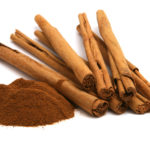 reduce your sugar cravings. By controlling blood sugar levels you can prevent spikes after meals, normalise your blood sugar levels and improve glucose control.
reduce your sugar cravings. By controlling blood sugar levels you can prevent spikes after meals, normalise your blood sugar levels and improve glucose control. Some options – flax or chia seeds (high in omega-3 fatty acids), borage oil (high in 3 and 6), evening primrose oil(high in 3 and 6), and fish oils (high in omega- 3 oils)·
Some options – flax or chia seeds (high in omega-3 fatty acids), borage oil (high in 3 and 6), evening primrose oil(high in 3 and 6), and fish oils (high in omega- 3 oils)· percent. Symptoms included hot flashes, night sweats, headaches, insomnia and mood swings. The other studies reported improvements in fatigue, irritability, hot flashes and vaginal dryness
percent. Symptoms included hot flashes, night sweats, headaches, insomnia and mood swings. The other studies reported improvements in fatigue, irritability, hot flashes and vaginal dryness